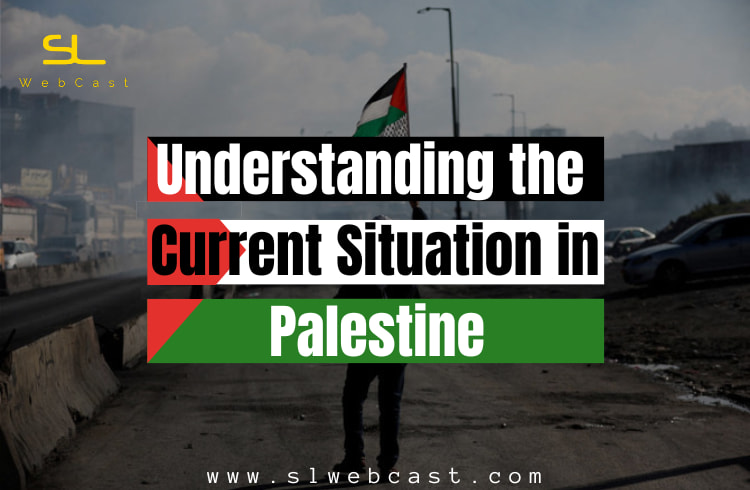At least 313 Palestinians have been killed and another 1,990 wounded on the 10th of October 2023, the Palestinian Health Ministry in Gaza said. Israel has been carrying out airstrikes targeting Hamas since the group’s resistance against Israel began early on the 7th of October.
The ongoing conflict in Palestine is a deeply rooted and complex issue that has garnered international attention for decades. The region, located in the Middle East, has experienced a long history of political, territorial and religious disputes. This article aims to provide an overview of the current situation in Palestine, shedding light on the key factors contributing to the conflict and the latest developments.
Historical Background
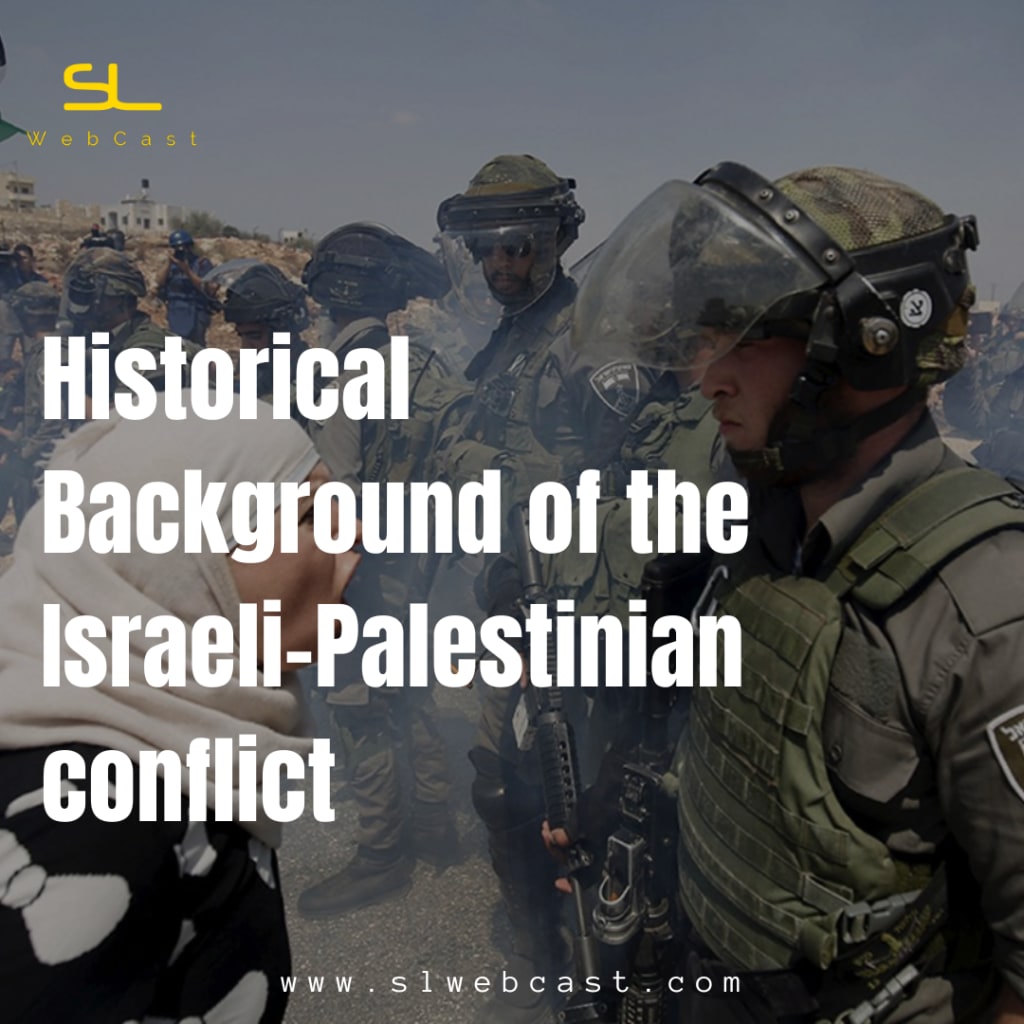
The origins of the Israeli-Palestinian conflict can be traced back to the late 19th century when Zionist Jews began migrating to Palestine, seeking to establish a Jewish homeland. Following the end of the British Mandate in 1948, Israel colonized Palestine, leading to a war with neighboring Arab countries and the displacement of hundreds of thousands of Palestinians. This event, known as the Nakba (catastrophe) remains a significant point of contention.
How did Israel come to Palestine?
For decades, Western media outlets, academics, military experts and world leaders have described the Israeli-Palestinian conflict as intractable, complicated, and deadlocked.
Here’s a simple guide to breaking down one of the world’s longest-running conflicts:
What was the Balfour Declaration?
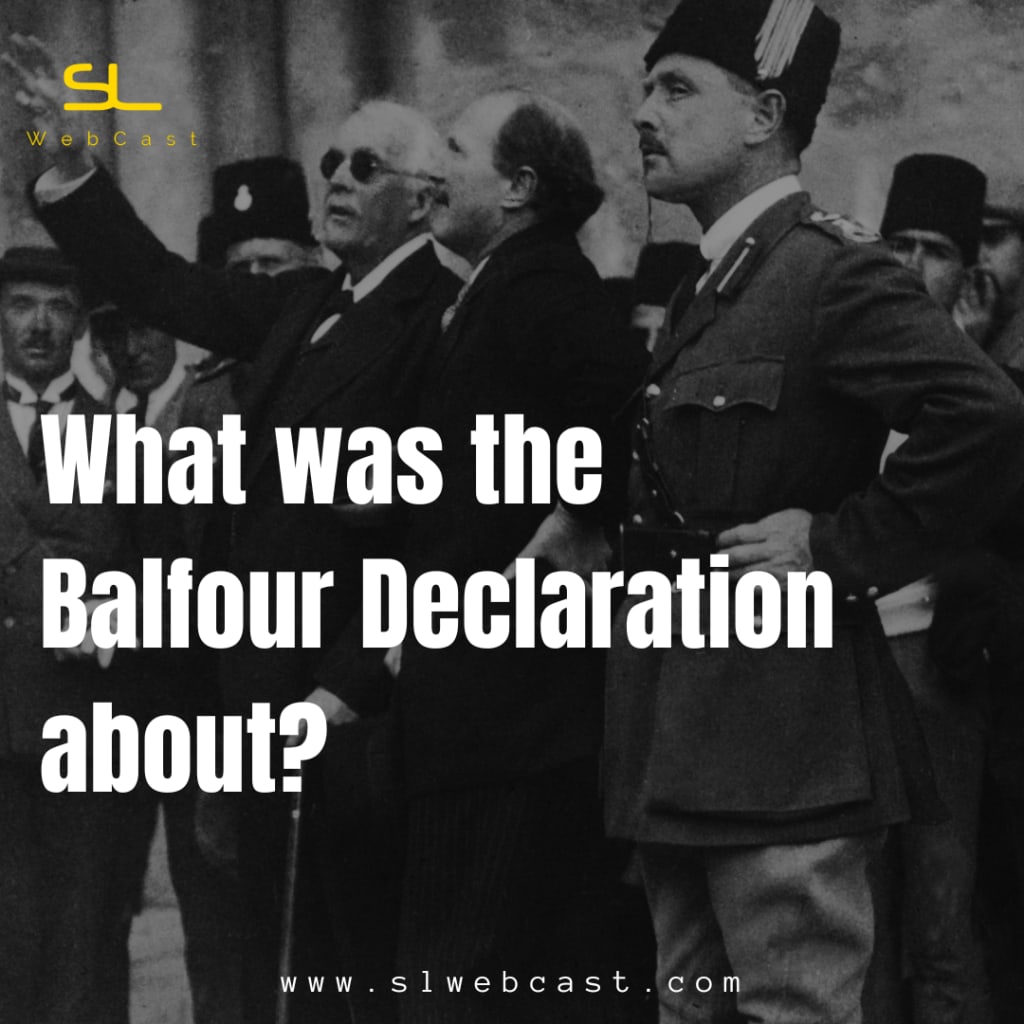
More than 100 years ago, on November 2, 1917, Britain’s then-foreign secretary, Arthur Balfour, wrote a letter addressed to Lionel Walter Rothschild, a figurehead of the British Jewish community.
The letter was just 67 words short but its contents had a seismic effect on Palestine that is still felt to this day. It committed the British government to “the establishment in Palestine of a national home for the Jewish people” and to facilitate “the achievement of this object”. The letter is known as the Balfour Declaration. In essence, a European power promised the Zionist movement a country where Palestinian Arab natives made up more than 90 percent of the population.
A British Mandate was created in 1923 and lasted until 1948. During that period, the British facilitated mass Jewish immigration many of the new residents were fleeing Nazism in Europe and they also faced protests and strikes. Palestinians were alarmed by their country’s changing demographics and British confiscation of their lands to be handed over to Jewish settlers.
Considering that the present situation in Palestine is one which is likely to impair the general welfare and friendly relations among nations
Taking note of the declaration by the mandatory Power that it plans to complete its evacuation of Palestine by 1 August 1948
Recommends to the United Kingdom, as the mandatory Power for Palestine, and to all other Members of the United Nations the adoption and implementation, with regard to the future government of Palestine, of the Plan of Partition with Economic Union set out below;
Requests that
(a) The Security Council take the necessary measures as provided for in the plan for its implementation
(b) The Security Council considers whether the situation in Palestine constitutes a threat to the peace if circumstances during the transitional period require such consideration. If it decides that such a threat exists, and in order to maintain international peace and security, the Security Council should supplement the authorization of the General Assembly by taking measures, under articles 39 and 41 of the Charter, to empower the United Nations Commission, as provided in this resolution, to exercise in Palestine the functions which are assigned to it by this resolution
(c) The Security Council determine as a threat to the peace, breach of the peace or act of aggression, in accordance with Article 39 of the Charter, any attempt to alter by force the settlement envisaged by this resolution
(d) The Trusteeship Council be informed of the responsibilities envisaged for it in this plan
Resolución 181 de la ONU, habla de la Partición de Palestina como territorio. No habla de tierra árabe o judía
— 📷 Siempre en Objetivo 📸 (@AlejandroEFigue) October 11, 2023
Pueden ver el y los mapas actualizado de la ONU de Palestina, Israel y de los territorios que ha ocupado ilegalmente hasta mayo de 2023.https://t.co/HOvNQ8KhRo pic.twitter.com/qa5Y3gLQrI
One of the central issues in the Israeli-Palestinian conflict is the Israeli occupation of the West Bank, including East Jerusalem and the Gaza Strip. This occupation, which began in 1967 during the Six-Day War, has resulted in the establishment of Israeli settlements in Palestinian territories, leading to the displacement of Palestinians and the violation of international law.
Palestinian Statehood and Peace Process
The Palestinian leadership seeks an independent state in the West Bank, Gaza Strip and East Jerusalem, with East Jerusalem as its capital. The peace process initiated in the 1990s, aimed to resolve the conflict through negotiations between Israel and the Palestinian Authority. However, the process has faced numerous obstacles including issues related to borders, settlements, security and the right of return for Palestinian refugees.
The wars in the Gaza Strip
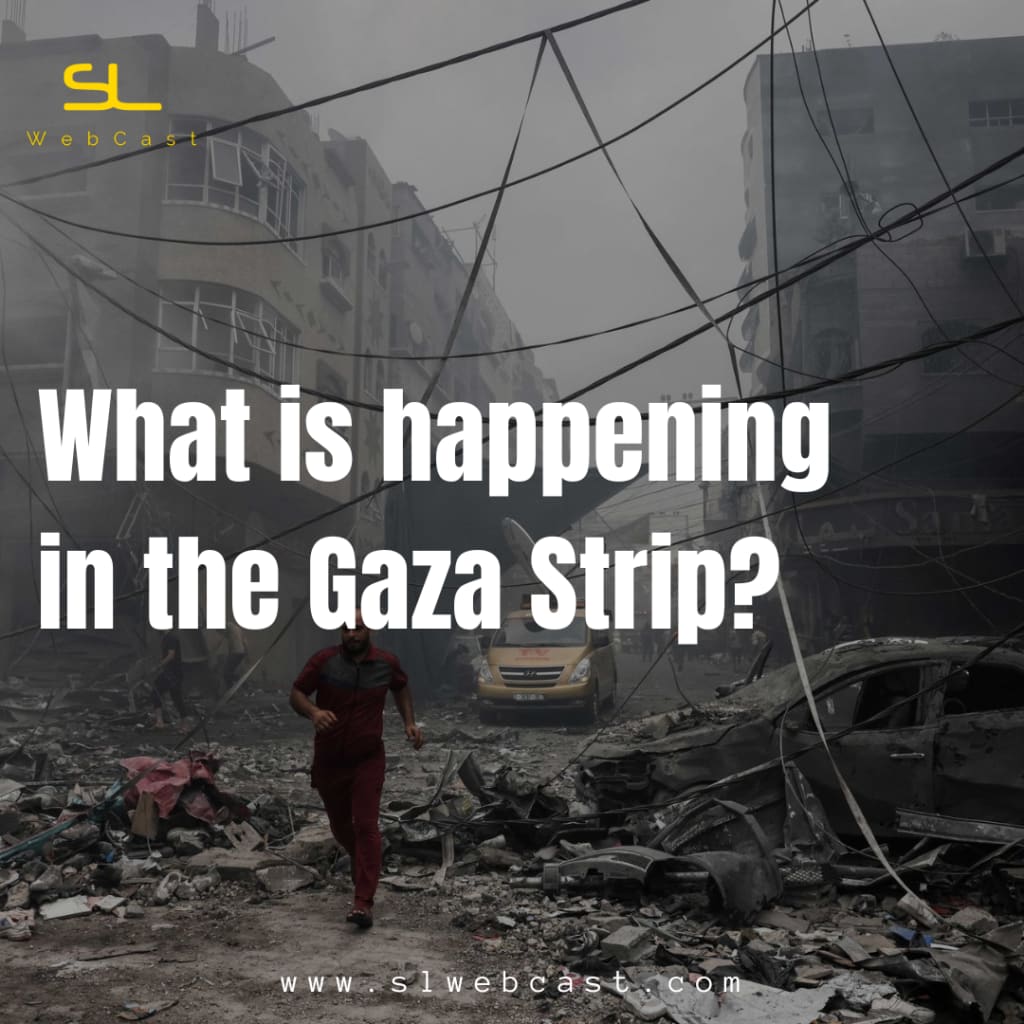
Israel has launched four protracted military assaults on Gaza: in 2008, 2012, 2014 and 2021. Thousands of Palestinians have been killed including many children and tens of thousands of homes, schools and office buildings have been destroyed.
Rebuilding has been impossible because the siege prevents construction materials, such as steel and cement, from reaching Gaza. The 2008 assault involved using internationally banned weaponry, such as phosphorus gas.
In 2014, Israel killed more than 2,100 Palestinians, including 1,462 civilians and nearly 500 children. During this assault called Operation Protective Edge by the Israelis, about 11,000 Palestinians were wounded, 20,000 homes were destroyed and half a million people were displaced.
What is with the Palestine-Israel and Al Aqsa Mosque?
The Al-Aqsa lies at the heart of Jerusalem’s Old City on a hill known to Jews as Har ha-Bayit or Temple Mount and to Muslims internationally as al-Haram al-Sharif or The Noble Sanctuary.
Muslims regard the site as the third holiest in Islam, after Mecca and Medina. Al-Aqsa is the name given to the whole compound and is home to two Muslim holy places: the Dome of the Rock and the Al-Aqsa Mosque, also known as the Qibli Mosque, which was built in the 8th century AD.
The compound overlooks the Western Wall, a sacred place of prayer for Jews, for whom the Temple Mount is their most sacred site. Jews believe biblical King Solomon built the first temple there 3,000 years ago. A second temple was razed by the Romans in AD 70.
Israel captured the site in the 1967 Middle East war and annexed it with the rest of East Jerusalem and adjoining parts of the West Bank in a move not recognized internationally. The Al-Aqsa compound has long been a flashpoint for deadly violence over matters of sovereignty and religion in Jerusalem.
Following attempts by prominent Israeli figures to establish Jewish prayers at Al Masjid Al Aqsa and subsequent protests, a law was passed prohibiting Jewish prayer at Al Masjid Al Aqsa. The decision also meant that Jews and foreign tourists could only enter Al Masjid Al Aqsa through the Maghrebi gate.
However, since 1967 many Israeli authorities have passed rulings permitting Jews to offer worship on the site of Al Masjid Al Aqsa and many organizations have been lobbying Israeli officials to start the process of rebuilding a Jewish place of worship on the sacred land of Al Masjid Al Aqsa. So Israelis have attacked for 75 years Muslims who are worshipping Al-Aqsa and killed so many lives.
In 1996, the opening of a new access tunnel near the Al-Aqsa Mosque compound, a gesture perceived by the Palestinians as a desecration of this holy site, provoked clashes that left more than 80 people dead in three days. In 2000, the Israeli politician Ariel Sharon, then opposition leader, led a group of Israeli lawmakers onto the Temple Mount/ Al-Haram Al-Sharif complex. Palestinians protested and there were violent clashes that quickly escalated into the second Palestinian uprising, also known as the Al-Aqsa Intifada.
Clashes at the site in 2021 contributed to setting off a 10-day war between Israel and Gaza. The Al-Aqsa Mosque compound is a place where the slightest incident can escalate. Over the past decade, it is where all the major Palestinian uprisings have started. Beyond its religious and symbolic significance, it has served as an outlet for years of pent-up frustrations and anger.
History of Masjid Al Aqsa
Since the beginning of the ongoing Israeli occupation of the West Bank, the mosque has remained under the independent administration of the Jerusalem Islamic Waqf. The last Prophet of Islam, Muhammad (Peace Be Upon Him) travelled from the Sacred Mosque in Mecca to al-Aqsa during the Night Journey.
Masjid Al-Aqsa was the second Masjid to be built on Earth by Adam. It is believed, Adam built Masjid Al-Aqsa 40 years after he first built the Kabah in Makkah. This makes Masjid Al-Aqsa very important for Muslims as Allah ordered for it to be built by the very first man He put on Earth. Prophet David established his kingdom in part of Palestine and controlled Jerusalem. His son, Prophet Sulaiman(Solomon) rebuilt Masjid Al-Aqsa with the help of the natives, and next to it, he built the ruler’s palace. After Prophet Solomon’s death, his two sons divided his kingdom amongst themselves.
For several decades, Israel has been excavating under the Al-Aqsa Mosque as part of a vague, historically motivated search for ‘Solomon’s Temple. ‘ These excavations represent Israel’s attempt to justify the occupation through archaeology, by which Israelis claim they can trace their heritage to the land of Palestine. The Al-Aqsa mosque fire was an arson attack on Jerusalem’s al-Aqsa Mosque, the primary prayer hall within the Al-Aqsa compound, on 21 August 1969. The attack was carried out by Australian citizen Denis Michael Rohan, who initially set fire to the pulpit.
International Response and Humanitarian Concerns
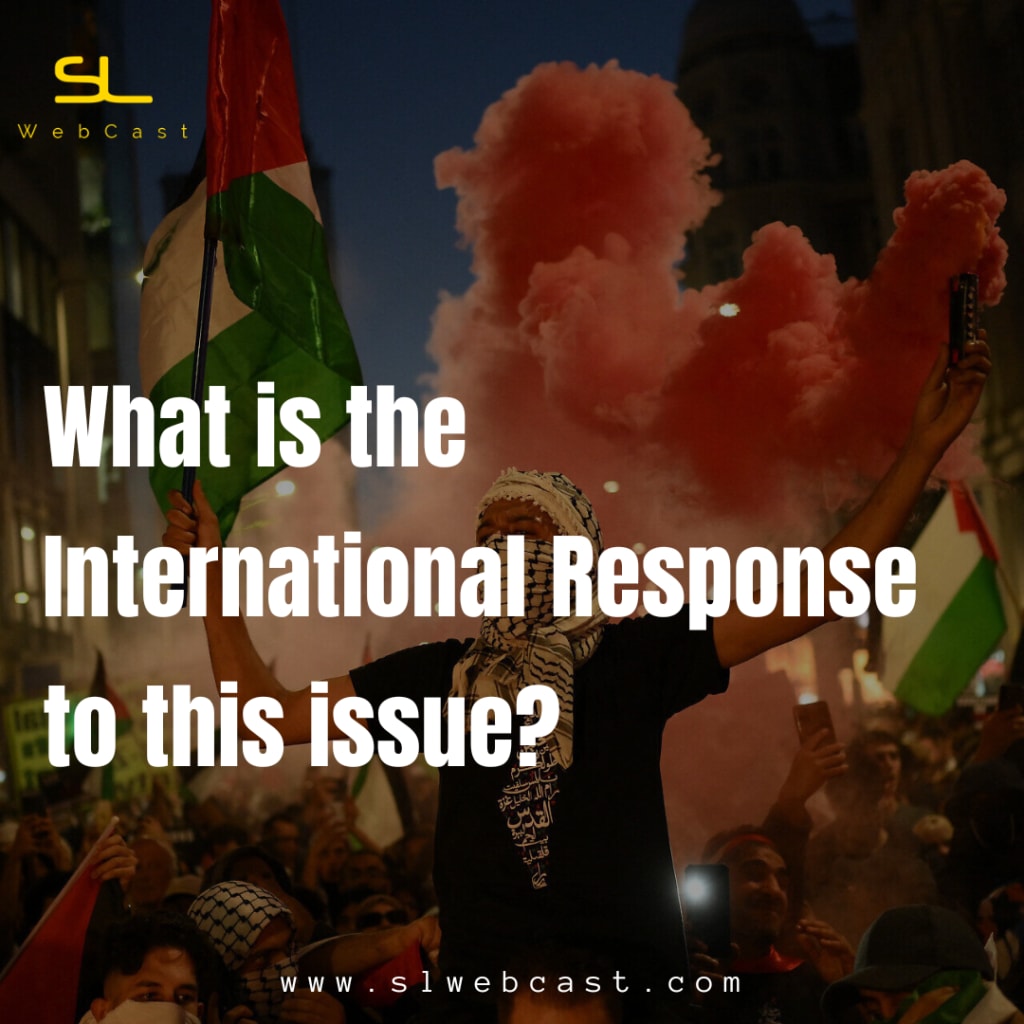
The Israeli-Palestinian conflict has drawn international attention and condemnation. Many countries, including the United States, have attempted to mediate and facilitate peace negotiations. However, finding a lasting solution has proven challenging due to the complex nature of the conflict and differing perspectives on key issues.
The situation in Palestine has also raised concerns about humanitarian conditions, particularly in the Gaza Strip. The blockade imposed by Israel, coupled with limited access to basic services has resulted in high poverty rates, limited healthcare, and inadequate infrastructure
- Protection
Heavy airstrikes since the 7th of October have displaced nearly 190,000 people in Gaza, so the UN Relief Agency for Palestine Refugees, (UNRWA), is sheltering 137,500 men, women, and children in 83 of its 288 schools, according to the agency’s latest situation report. As of the 10th of October, 18 (UNRWA) facilities sustained collateral and direct damage from airstrikes, with injuries and deaths reported.
2. De-escalation
Top UN officials, including the Office of the UN Special Coordinator for the Middle East Peace Process (UNSCO), were engaging with parties to the conflict and key stakeholders, including the United States, Qatar and the European Union, to de-escalate the conflict.
The UN peacekeeping mission in Lebanon, UNIFIL, continued to monitor the unfolding “volatile” security situation along the Israel-Lebanon border, issuing guidance for civilians and updates via social media.
“We have fully engaged our liaison and coordination mechanisms at all levels, to help avoid misunderstandings between Lebanon and Israel that could lead to an escalation of the conflict,” UNIFIL said. “This is our main focus at the moment, and we are working 24/7 to accomplish it.
3. Emergency services
Israel announced a blockade of food, water, fuel, and electricity in Gaza on the 9th of October. Mobile toilets and showers are being deployed to UNRWA shelters, as needed. Palestinians in Gaza now only have electricity for three to four hours per day, hindering the ability of health facilities to function and treat those injured, according to the UN Humanitarian Coordination Agency, OCHA.
The Israeli-Palestinian conflict remains a deeply entrenched issue with no easy resolution in sight. The recent events in Palestine have once again highlighted the urgent need for a comprehensive and just peace agreement that addresses the aspirations and rights of both Israelis and Palestinians. International efforts, diplomatic dialogue and a commitment to respecting human rights are crucial to achieving a peaceful and sustainable resolution to this long-standing conflict.
More broadly, Israel should denounce violence and incendiary hate speech, no matter the source, and mete out impartial justice to all. Israeli officials have a particular responsibility to combat ethnic hatred emanating from the Jewish far right and to make sure Palestinian citizens are protected from both police and civilian violence in the same way that Jewish citizens are. Palestinian leaders in Israel have a parallel obligation within their own communities. Many around the globe, and especially in the U.S. and Europe, have been surprised by the images of Jewish mob violence, but the sentiments they embody did not spring up overnight. They have long been cultivated and endorsed at the highest levels of the state. Tamping down ethnic incitement is a matter of self-preservation for the Jewish majority, because the alternative, a steady escalation of civil strife, is already on the horizon.
In conclusion, the recent attacks between Palestine and Israel have resulted in significant losses. The conflict has led to the loss of many innocent lives, including children and civilians, and has devastated communities and infrastructure in Palestine.
The ongoing violence has exacerbated the already dire humanitarian situation in Palestine, with limited access to basic necessities such as food, water, and healthcare. The attacks have further deepened the sense of fear, trauma, and instability among Palestinians, leaving them in constant distress and uncertainty about their future.
Furthermore, the attacks have hindered any progress towards a peaceful resolution, further deepening the divide and creating more hostility between the two sides. The tense situation makes it challenging to rebuild trust and find a sustainable solution that can bring lasting peace to the region.
It is crucial that international bodies and governments step up their efforts to de-escalate the conflict and find a peaceful resolution that recognizes the rights and aspirations of all parties involved. The loss of life, destruction, and suffering on both sides of the conflict emphasize the urgent need for a just and lasting solution that ensures the security and dignity of both Israelis and Palestinians.
Ultimately, the recent attacks and losses suffered by Palestine highlight the importance of finding a peaceful resolution that addresses the root causes of the conflict. This includes addressing the issues of borders, settlements, and the status of Jerusalem, as well as promoting dialogue, understanding, and reconciliation between both sides.


